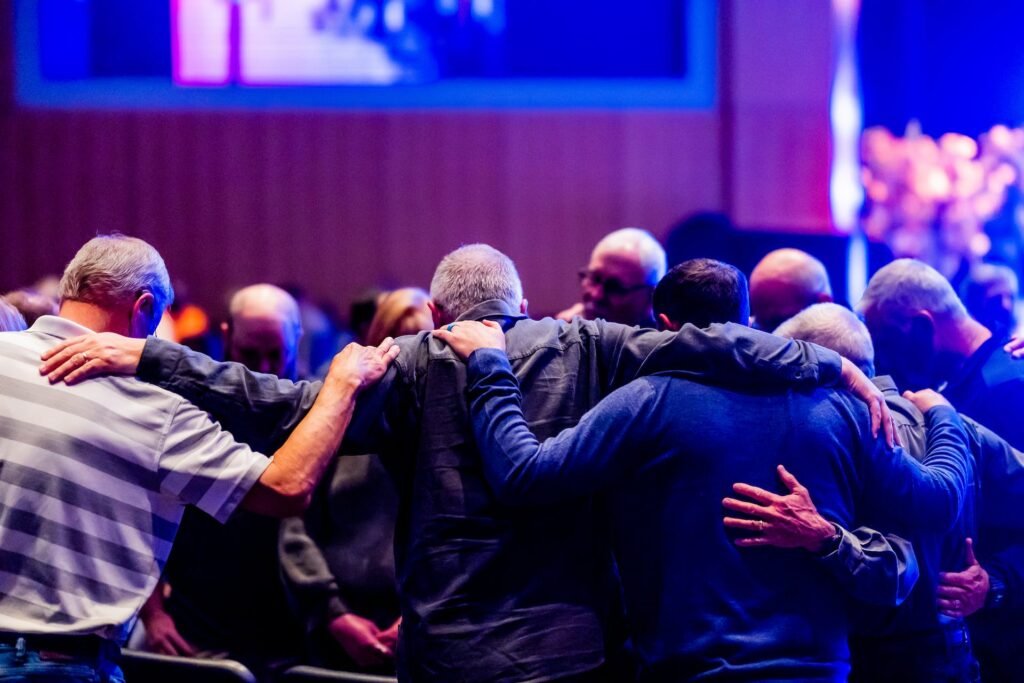Community and Belonging: The Role of Fellowship in Christian Faith

Introduction:
In explorations of the Christian faith, the significance of community and belonging emerges as a cornerstone element. This discussion aims to delve into the role of fellowship within Christian communities, diving deeper than the conventional understanding of congregational gatherings to clarify the broader implications of congregational ties and shared experiences.
The Foundation of Fellowship: A Hierarchical Examination
Single Congregations as Families
Fellowship within the Christian context represents more than a mere gathering of individuals; it embodies a foundational principle of shared support and communal bond. Beyond the confines of structured worship services, it cultivates familial relationships, echoing the dynamics of families, tribes, communities, and nations.
Cultivating the family with intentionality and care is necessary to thrive. The congregation mirrors the family structure by emphasizing shared values, mutual support, and a sense of belonging. Just as a family provides a haven for individuals to express their joys and sorrows, the church congregation becomes a spiritual family where members share life’s triumphs and challenges.
Scriptural examples abound, portraying the church as the “family of God” (Ephesians 2:19) and believers as brothers and sisters in Christ. The pastoral leadership often takes on a parental role, guiding and nurturing the spiritual growth of the congregation, echoing the apostle Paul’s reference to himself as both a “father” and a “mother” to the Corinthian believers (1 Corinthians 4:15).
As family members contribute their unique gifts and talents, the church, like a family, becomes a space where individual strengths complement one another, fostering a sense of unity and shared purpose. The familial model in congregational life exemplifies the profound interconnectedness and deep bonds that characterize biological families and the spiritual family within the church.
Denominational Congregations as Tribes
The concept of tribes, exemplified in the twelve tribes of Israel, finds resonance within various church congregations, seen most acutely in churches of the same denomination. Much like the tribes of Israel, distinct congregations within a denomination often share a standard set of beliefs and practices, forming a cohesive unit within the more significant spiritual landscape. Each congregation, akin to a tribe, maintains its unique identity while contributing to the overarching unity of the denomination.
Within these congregations, leaders often function as tribal elders, guiding and shepherding the community with wisdom and care. The bond among congregants reflects the familial closeness seen in tribes, fostering a sense of shared identity, purpose, and mutual support. As the twelve tribes of Israel were essential components of the broader nation, individual congregations play a similar role in contributing to the vitality and diversity of the more prominent denominational family.
Tribes may have minor variations in beliefs, but these differences are typically minor, secondary issues. For example, there may be minor differences in communion. One “tribe” may perform the sacrament once per month, another once per quarter. Its commonly held meaning and necessity are far more important than its timing. There is commonality in the central pillars of faith, and a member of one congregation should be able to visit any other “tribe’s” congregation and find solace.
Moreover, in the collective worship and shared values, the congregation embodies a model of a larger nation—a diverse yet unified entity bound together by a common purpose and shared beliefs. In embracing these relational paradigms, the Christian fellowship extends beyond the church walls, manifesting as a dynamic expression of interconnected relationships that resonate with familial, tribal, communal, and national affiliations.
Families and tribes are reflections of each other. Solid and cohesive families are essential to the tribe’s survival as they are the foundational building blocks, providing emotional support, continuity, and a sense of shared heritage. These families contribute to the social fabric of the tribe, ensuring the transmission of spiritual values, traditions, knowledge, and a collective identity that fortifies the tribe against external challenges.
Collective Learning and Spiritual Growth:
Christian fellowship serves as a dynamic educational forum, resembling a communal classroom where participants concurrently assume the roles of learners and educators. Within this framework, individuals contribute to the collective knowledge pool, fostering an environment conducive to exploring faith, posing inquiries, and exchanging personal narratives. Consequently, spiritual growth becomes a shared endeavor enriched by diverse perspectives and experiences.
Unity as a Pillar:
The strength derived from unity constitutes a defining feature of Christian fellowship. Analogous to the concept of teamwork, unity empowers individuals within a Christian community to face life’s complexities collectively. Shared beliefs and values serve as the unifying force, transforming the congregation from a group of individuals into a cohesive entity capable of withstanding the challenges of the human experience.
Communal Celebration:
Celebratory moments, irrespective of scale, acquire heightened significance within Christian fellowship. The communal environment amplifies the joy experienced during personal triumphs, creating a collective sense of accomplishment. In essence, individual victories become communal celebrations, reinforcing the interconnectedness of the community and fostering an atmosphere of mutual support and encouragement.
Navigating Life’s Challenges Together:
The Christian journey is not exempt from life’s adversities, and during these tumultuous times, the true strength of fellowship manifests. Christian communities serve as havens during life’s storms, offering a collective support system that extends beyond platitudes to genuine care, active listening, and communal prayer. In navigating challenges together, individuals find solace in shared vulnerability and discover a wellspring of hope within the collective bond.
Conclusion:
In conclusion, the role of fellowship in the Christian faith transcends conventional paradigms, encompassing shared support, collective learning, unity, communal celebration, and the fortification against life’s challenges. Through intentional engagement within the Christian community, individuals find a sense of belonging, contributing not only to their personal spiritual growth but also to the collective enrichment of the community. As believers navigate the intricate tapestry of faith, the significance of fellowship becomes increasingly apparent—a foundational and transformative element that elevates the Christian experience to a communal journey of shared purpose and grace.
